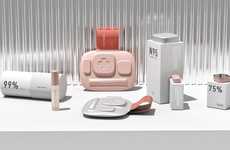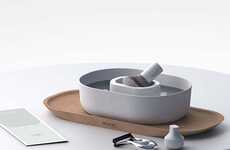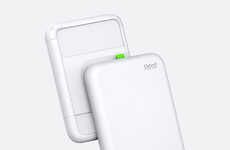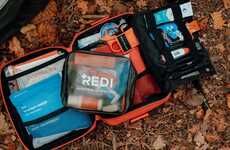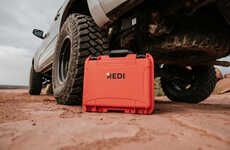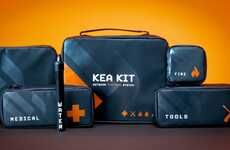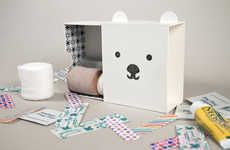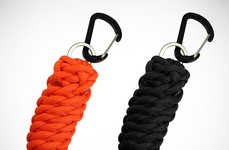
The Home First Aid Kit by Gabriele Meldaikyte is Made for the Disabled
Meghan Young — June 27, 2013 — Lifestyle
References: gabrielemeldaikyte & psfk
The Home First Aid Kit updates a common household object to better accommodate the needs of the disabled. Whether suffering from a broken arm or a missing one, it is important to surround oneself with items that are easily accessible in case there is no one around the help. This design provides that convenience.
Designed by Gabriele Meldaikyte, the Home First Aid Kit makes each section of the kit in easy reach. Compartmental flaps unravel open, each of which address different types of injury such as burns, minor scratches and deep cuts. Not only does this setup prove more practical to use for a single-handed individual, it also comes with instructions to guide those unfamiliar with first aid procedures. Thus, the Home First Aid Kit supports people in real life scenarios.
Designed by Gabriele Meldaikyte, the Home First Aid Kit makes each section of the kit in easy reach. Compartmental flaps unravel open, each of which address different types of injury such as burns, minor scratches and deep cuts. Not only does this setup prove more practical to use for a single-handed individual, it also comes with instructions to guide those unfamiliar with first aid procedures. Thus, the Home First Aid Kit supports people in real life scenarios.
Trend Themes
1. Updated Accessibility Kits - Designing accessible and easy-to-use household objects and medical kits that consider special needs populations leads to improved quality of life and fills a gap in the market.
2. Inclusive Medical Devices - Developing medical devices that are user-friendly for individuals with disabilities and special needs allows the healthcare industry to expand its reach and improve patient outcomes.
3. DIY Medical Assistance - Creating do-it-yourself medical kits and devices can provide a sense of independence to individuals with disabilities and special needs and increase their self-efficacy and self-worth.
Industry Implications
1. Healthcare - The healthcare industry can benefit from designing inclusive and updated medical devices for individuals with disabilities and special needs, leading to improved patient outcomes and increased market share.
2. Home Care - The home care industry can provide more accessible and useful solutions to individuals with disabilities and special needs, increasing their quality of life and independence.
3. Disability Services - The disability services industry can create DIY medical assistance materials for individuals with disabilities and special needs, giving them the tools to care for themselves and improve their confidence and self-worth.
2.4
Score
Popularity
Activity
Freshness




